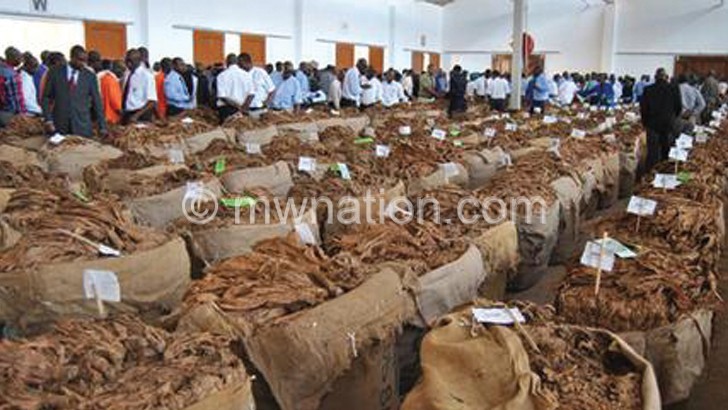Review backs tobacco contract farming
Tobacco Commission (TC) says there is now substantial evidence that Malawi should continue with the implementation of the Integrated Production System (IPS) of growing tobacco also known as contract farming.
This recommendation follows a review by independent consultants engaged by the tobacco industry regulator to assess IPS following its adoption seven years ago.

The tobacco industry saw the emergence of IPS in 2012 which among other objectives, was aimed at advancing producing compliant crop in a sustainable manner.
TC board chairperson Inkosi Ya Makhosi M’mbelwa V informed a recent tobacco industry conference in Lilongwe that seven years down the line, the commission saw it fit to have empirical evidence to ascertain whether IPS is meeting its set objectives.
He said consultants have now completed the review and that the report is out with recommendations.
He said: “IPS has achieved most of its objectives by, among other things, improving leaf quality, prices and farmers’ access to inputs.”
M’mbelwa observed IPS has enhanced compliance in the production of tobacco in the country, but stated that the report has also identified some challenges rocking the system.
“The report has made recommendations and some of which are that Malawi should continue with IPS as there are limited options not to continue with the policy,” he said.
Reacting to the findings, AHL Group public relations manager Tereza Ndanga yesterday said as a marketing platform, they are geared to handle all systems as provided by the law governing tobacco sector in Malawi.
“As a tobacco marketing platform, we are ready to trade in any form, be it contract or auction,” he said.
Ndanga said AHL Group’s major task is facilitation of the marketplace and ensuring that all tobacco market stakeholders have their needs addressed.
In a recent interview, TC corporate planning and development manager Hellings Nason said the adoption of IPS has made several positive impacts in the tobacco industry such as high access to inputs by contracted growers, high yields per hectare from 800 kilogrammes (kg) to 2 200 kg as well as strict compliance to sustainable tobacco production.
He said: “This simply means that contract system is more competitive, reflecting on quality and compliance.
“IPS has made several positive impacts, which also include efficiency in delivery such that more volumes under contract are being traded within a short period of time.”
In 2013, another study conducted by NKC Independent Economists commissioned by International Tobacco Growers Association (ITGA) praised the adoption of IPS, saying it led to a decline in costs and more sustainable farming enterprises within the industry.





